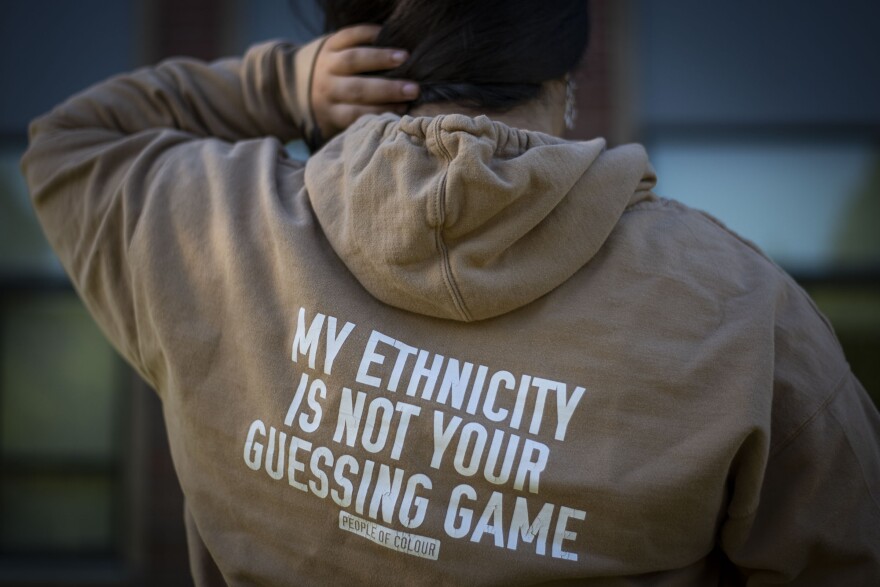The pressures of assignments, puberty—plus juggling extracurriculars, and home life—can make it hard to be a kid in school. And even more so if you’re a student of color. Here’s why inclusive curriculums are essential for student learning environments.
Students of color are going through the same struggles as other kids, combined with the added stress and anxiety of facing prejudice from their peers—and sometimes their own instructors.
Take it from Mali Gottfried, a senior at Corvallis High School. She’s had classmates sit by her and mock Indian accents, her skin color, as well as students and a 6th grade substitute teacher who make fun of her full name, Malika.
And during situations like this, her classmates would laugh at her name being mispronounced. Now that she’s older, Gottfired’s reflecting how experiences like this have impacted her identity and her ability to feel comfortable at school.
“I think especially when teachers make these comments and when they look at you differently or treat you differently, it definitely does have a bigger impact in some ways because the person who I’m supposed to feel comfortable around and is supposed to be guiding me and teaching me is someone who is also making me feel bad about who I am,” said Gottfried.
And that wasn’t the only time she felt singled out for her race. Gottfried said she was probably in third grade when she learned about Martin Luther King Jr. And Gottfried remembers the experience vividly.
“When my teacher was talking about segregation and how only white people were allowed in these places and all of that, I remember pretty much everyone just turning and looking at me and like the two other nonwhite people in our classroom,” said Gottfried.
She said she doesn’t think it was purposeful. But the experience of being singled out based on her race has stuck with her for years.
“It's just interesting,” said Gottfried. “That's something that has definitely stuck in my mind and I can replay that over and over again. That was one of my first experiences when I kind of realized like, ‘Oh, I'm different. I don't look like everyone around me.’”

And because of that, she wants a more inclusive curriculum in order to help normalize diversity. Gottfried believes if students engaged with more coming of age stories by authors of color, students might be more understanding to the experiences of people who are non-white.
“We’re in a society where there are people that look different and have different experiences, and we need to try to learn about those experiences as much as we can,” said Gottfried. “Because in order to live around these people and live with these people, we need to look at different viewpoints. And it goes for also reading books about people who aren’t straight or cis gender.”
And Gottfried is onto something.
42 miles away in Eugene, Churchill High School teacher Leah Dunbar is the creator of the course “courageous conversations”. She said the class has been in the 4J district in some capacity for the past 12 years.
“Courageous conversations or ethnic studies isn’t particularly for any ethnic group--it’s for all of us,” said Dunbar. “Because we all need to be equipped with the tools to understand racism so we can heal from racism.”
Dunbar said courageous conversations wouldn’t exist without the help of 11 or so elders and mentors who paved the way for more ethnic studies curriculum. So if teachers have been fighting for this curriculum for the past 40 or so years, why don’t all schools offer ethnic studies courses?
In a nutshell, some teachers say the power to have these courses is in the hands of students and parents.
As for Dunbar, she said she’s still working to provide an ethnic studies course in more schools.
“This is the moment where it seems like more folks are ready to have those kinds of conversations, but there are many, many barriers that exist in an institution like school to prevent that from happening,” said Dunbar. “From scheduling conflicts to prioritizing, ‘where do we even get money for textbooks, to the politicization of the class?’”
With the recent passage of Oregon house bill 13 and bill 2845, students are now required to learn more about Indigenous cultures, The Holocaust and other genocides, and other ethnic studies topics.
But let’s not forget Gottfried’s experiences with racism. Because despite the state’s attempts to provide a more inclusive curriculum, some students are still experiencing racism in schools.
That’s where another piece of legislation comes into play. Oregon house bill 2016 was enacted in 2015 to improve the attendance and graduation rates of Black students, reduce the number of discipline incidents, and provide more culturally responsive curriculums.
Under the bill, schools are able to establish Black Student Unions and work with their county’s Education Service District, to provide a safe-space for Black students to learn about and engage with their Black peers and culture.

Holli Johnson is the coordinator for the African American, Black Student Success (AABSS) at the Lane County Education Service District. She and the AABSS Navigators have been working with students, but it’s still an uphill battle for some students.
“Kids took me around the corner and just said, ‘we’re scared,’” said Johnson. “They’re in a rural area, they’re probably the only one, two, or three [students]--five maybe--in that school, and they came to us and said they’re scared. And then they’re scared because everyone’s teasing them about this Black group--the BSU group. We have students who won’t come to our meetings because they’re so intimidated by the students in the schools”
As students and teachers prepare for the upcoming school year, Dunbar and Johnson hope more students will seek out culturally inclusive curriculums.
This story will be updated.




